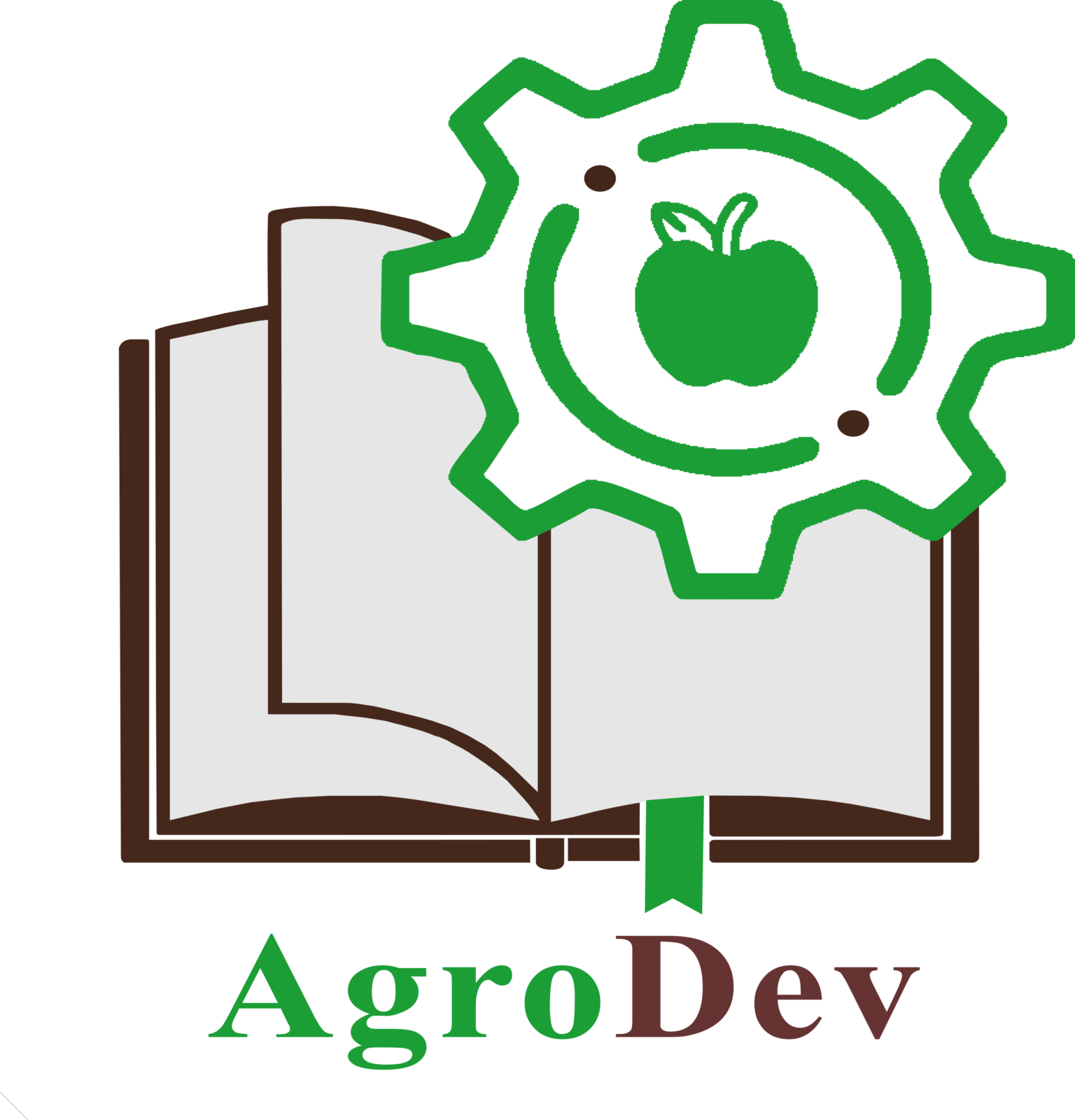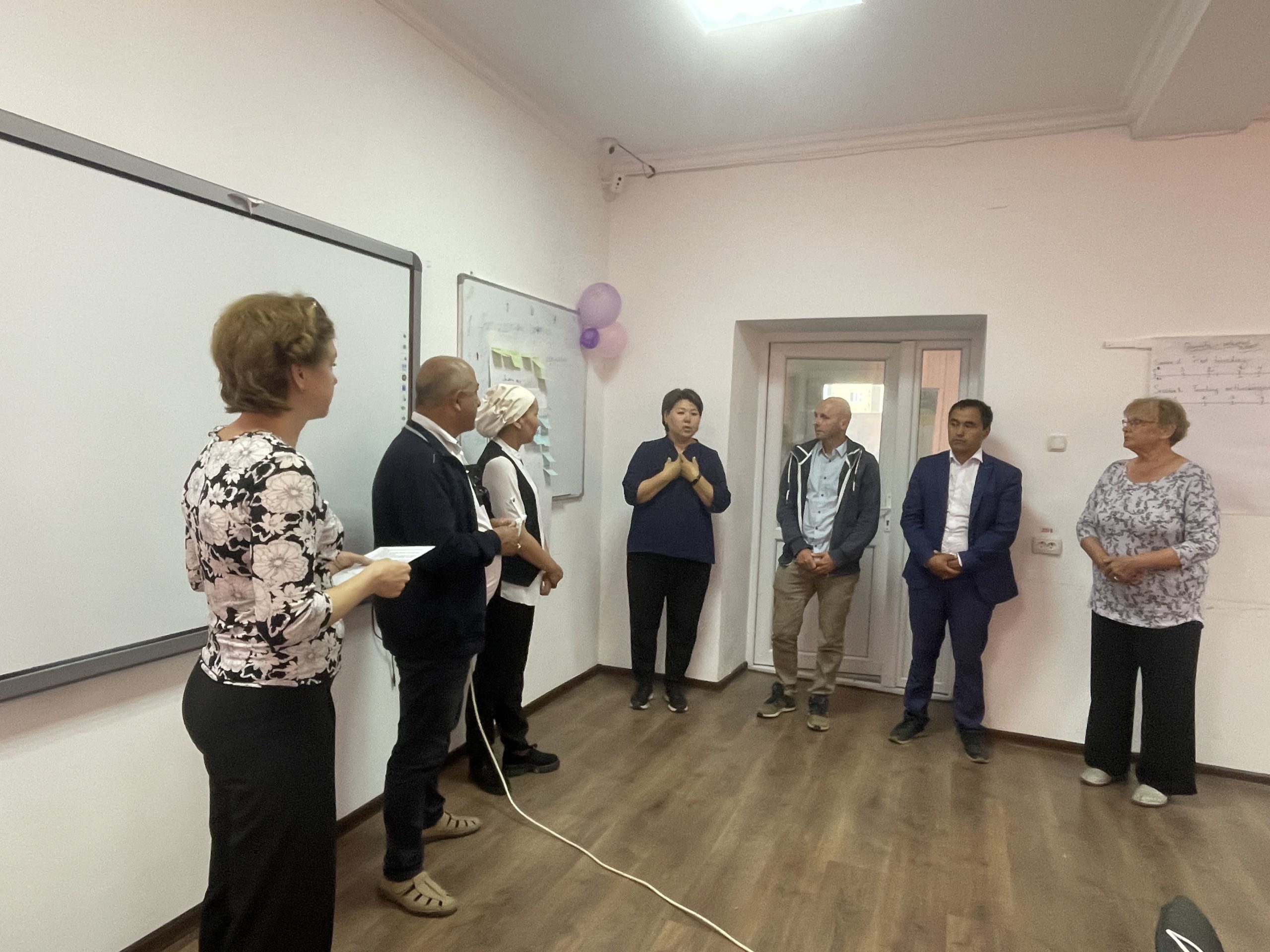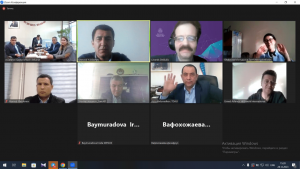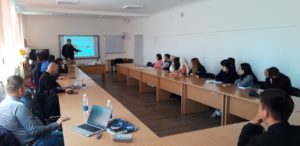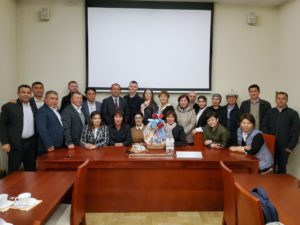On June 20-23, 2023, a workshop was held on the results and impact of the measures implemented to develop the capacity of academic staff of involved Kyrgyzstan’s and Uzbekistan’s universities and to improve the quality of teaching. The capacity building measures were implemented in the period March 2021-June 2023. The event was conducted within the framework of the AgroDev project. All partners of the project participated in the workshop.
During the workshop participants assessed a) the conducted training of academic staff in thematic areas and teaching methods, b) study visits to the countries of European partners, c) master classes, d) farm based -training at agricultural enterprises, e) the application of the developed methodology for assessment and assurance of the quality of modernized curricula, the educational process and results, as well as the activities necessary to ensure the sustainability of the project results. The participants also shared their experience in applying the knowledge and methods of teaching and actively discussed their experience and skills obtained during guest lectures, within the laboratory works with the use of modern tools, new methods of teaching, new knowledge in subjects.
The workshop was conducted according to the methodology proposed by the lead partner – the Latvia University of Life Sciences and Technologies. Participants noted that the format of the workshop was very fruitful, facilitating discussions and exchanges of views. A total of eight working sessions were held, in which participants responded to pre-prepared and received questions. Participants worked in mini-groups, led by EU partners staff.
Iskra Akylbekova, Kuban Akmatov, Adilet Zhaparov, teachers of Naryn State University highly appreciated the training on the methodology of teaching (conducted by the teachers of Linneus University, Sweden). The participants noted: “After the training we changed the approaches in teaching. Now, we’re taking an approach where 75% of the total time allocated for students to study is self-administered and only 25% of the time is direct contact between students and faculty. This means that 75% of knowledge is now given in practice.” The teachers also emphasize that the acquired experience gave a impetus to teach students to start-up ideas for processing agricultural products and developing new recipes in local conditions (experience of the Latvia University of Life Sciences and Technologies, Latvia).
Nurila Ibrayeva and Chinara Kadyrova, both professors at the Kyrgyz National Agrarian University, commented that the format of the workshop was the most interesting and useful. “It made it possible to compare the results and evaluate them in a comprehensive manner from different angles, since the same events were held and perceived in different, special ways at different universities. We have seen the results of partner universities, the challenges they faced, what was most valuable and innovative, and what knowledge and skills still need to be developed. As it was noted: “Our classes after gaining new knowledge and skills have turned out with a novelty. This can be compared to a plov without raisins and with raisins – the taste is different, which once again marks the importance of an individual approach in teaching depending on the conditions and relevance.”
Shakhista Ishniyazova, head of the Department of Agricultural Processing Technology, Standardization and Certification at the Samarkand branch of Tashkent State University of Economics, highlighted a workshop section devoted to building the capacity of academic staff in teaching methodologies. It was noted that it was important to focus on the self-research and research activities of students as the highest form of independent activity, which is possible only when the student has sufficient knowledge necessary to build scientific provisions, as well as the ability to put forward his scientific opinions. It was also stated that in modern conditions, distance learning is becoming increasingly important. Traditional and innovative teaching methods need to be in constant interaction, complement each other and exist at the same level.
Aktam Azizov, a professor at Tashkent State Agrarian University, noted the importance of timely awareness of measures to promote the sustainability of the achieved results, as well as the need for teachers to constantly master and implement new knowledge and methods of teaching, at the same time providing an approach in which the scientific basis of the methodology is set out in such a way that students can easily understand and assimilate knowledge throughout the whole educational process.
The workshop was concluded with the identification of activities to ensure sustainability of the project results, increase the positive impact on the involved Kyrgyzstan’s and Uzbekistan’s universities and target groups, and also identified a possible trajectory for the continuation and further development of cooperation between partners. A report will be developed by the autumn of 2023 to summarise all the findings and recommendations arising after the AgroDev project capacity building measures quality and impact assessment.
